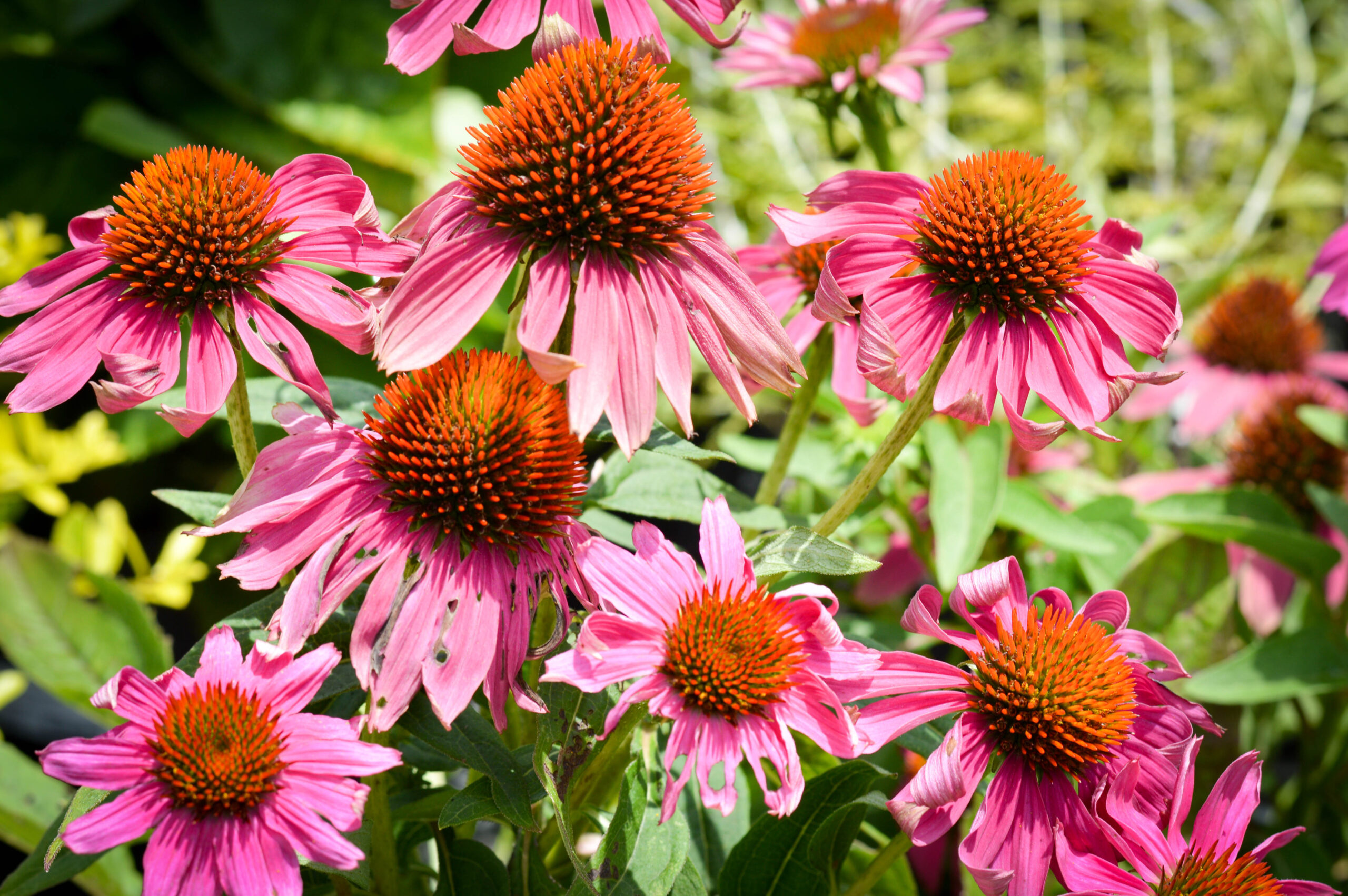
Creating a garden that continues to dazzle year after year is a goal every gardener aspires to achieve. The secret lies in the world of perennial plants—those incredible botanicals that grace us with their beauty season after season.
In this guide, we’ll explore some of the best perennial plants to grow, ensuring your garden remains a source of eternal delight.
Lavender
Lavender is a timeless classic in the world of gardening. With its stunning purple flowers, it’s no wonder why it’s a fan favorite among both the bees and humans alike. Lavender is a versatile plant, making it a staple in any garden type from herb gardens to borders or even containers. Its adaptability allows it to thrive in almost any environment as long as it has well-draining soil and gets plenty of sunshine.
Its fragrant scent is also believed to have therapeutic effects, making it a go-to choice for aromatherapy enthusiasts. Whether you’re a seasoned gardener or just starting, lavender is a must-have for any green thumb.
Coneflower
If you’re looking to attract pollinators to your garden, coneflowers are the way to go. These blossoming beauties, also known as echinaceas, have vibrant daisy-like blooms that are like a magnet for bees, butterflies, and hummingbirds.
And the best part? Coneflowers come in a range of colors, from pretty pinks to sunny yellows to bright whites, so you can pick the ones that suit your garden style the best. Plus, their resilience and drought tolerance means that you’ll get to enjoy their long-lasting blooms year after year. Experienced or not, every gardener needs some coneflowers in their life.
Daylily
Daylilies are truly a wonder of nature, with their stunning blooms that only last for a day but are so plentiful that they never fail to impress. These lovely flowers are available in an endless array of colors and patterns, making them perfect for adding a pop of color to any garden or landscape.
What’s more, daylilies are incredibly easy to grow, and they can thrive even in less-than-ideal soil conditions. With their dependability and ability to bring joy and beauty throughout the growing season, it’s no wonder that daylilies remain a favorite among gardeners everywhere.
Salvia
Salvias are a true delight for both the green-thumbed and the pollinators. With their unique tubular flowers and vibrant hues, these plants offer eye-catching vertical interest to any landscape. And the best part? They attract the most graceful creatures of the animal kingdom, including hummingbirds and butterflies, who just can’t resist their charms.
But that’s not all, salvia’s adaptability to different soil types and ability to tolerate drought makes it a versatile choice that can stand the test of time in any garden. So, whether you’re an experienced gardener or just starting out, add a few salvias to your collection and watch as they bring new life and beauty to your outdoor space.
Russian sage
If you’re looking for some enchanting greenery to make your garden stand out, look no further than Russian sage. This perennial plant is a true work of art with its beautiful silvery-gray leaves and elongated lavender-blue flower spikes. But what makes Russian sage truly magical is how it sways in the breeze. Watching it move and dance adds a sense of motion and life to your garden like no other plant can.
And the best part? You don’t have to be an experienced gardener to keep this plant healthy — it’s resistant to pests and can withstand drought conditions. Take your garden to the next level with Russian sage, and enjoy the sophisticated elegance it brings to any landscape.
Conclusion
Incorporating perennial plants into your garden can be a beautiful and enriching experience. These plants offer a connection to the cyclical nature of the natural world with their vibrant and ever-changing displays that renew themselves year after year. By considering their specific requirements, you can create a harmonious environment where they can thrive for years to come.
To further enhance your garden, consider adding small bark nuggets in Salt Lake City to cover the soil around the plants. This natural mulch provides many benefits, including preventing soil erosion and regulating soil temperature and moisture. With a bit of care and consideration, your garden can be a haven for both you and the natural world.

